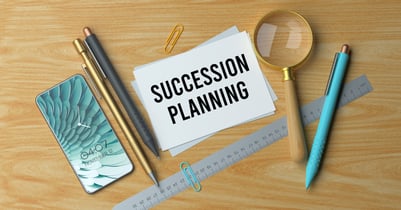How to ace your telephone interview: a complete guide
September 11, 2023
- Home
- Blog

Source: Pexels/Marcus Aurelius
In response to the Covid-19 pandemic, companies have had to find new ways of working, even when it comes to interviewing candidates and creating new hiring processes. In some instances, this has meant conducting interviews over the phone.
However, preparing for such an interview can be different from preparing to meet a potential employer face-to-face.
So, how do you make the right impression in a telephone interview? We’ve put together some top tips on how to prepare:
- Do your research
- Recap your CV and cover letter
- Keep answers concise
- The art of listening
- Common mistakes
- Differences between video and phone interviews
Do your research
It’s important to carry out thorough research on the company, just as you would in an in-person interview.
It might be tempting to Google the company during the interview, but this might take your attention away from the questions being asked and you might miss something important. It’s important to be ready to ask any common interview questions, such as ‘what do you know about the company?’ without needing the internet.
Once you have a broad overview of the company, dig deeper into the specifics of its structure, company culture, future plans, products, and services. The best place to find information is usually the organisation’s website and social media channels.
It's good to also research your hiring manager on LinkedIn and get to know more about the person that's going to interview you: what companies have they worked for, projects they were previously involved and more. This can help in the overall experience and hiring process.
Recap your CV and cover letter
The purpose of this first phone interview is to scrutinise the authenticity of the information you provided. Be sure to read over every detail in your resume, cover, and application letter beforehand. Think of questions that the potential employer may drive from the information in there and prepare to answer them. If you want tips on how to improve on your cover letter, here's a guide.
An advantage of a telephone interview is that you can check for facts from your CV and cover letter during the session (but be careful they don't act as an interruption).
Keep your answers concise
When you’re speaking on the phone, conversational pauses can feel awkward, so it can be tempted to fill the silence with unnecessary conversation.
The ability to explain a fact in a short, concise, and understandable manner is priceless. Employers in energy, process, and manufacturing industries want people who can easily simplify complex issues. Therefore, answer queries in a tidy and in orderly way without touching excessive info that the employer already knows or hasn't asked. Summarise your answers as much as possible.
The interviewer will use any pauses in conversation to process your answer, so don’t worry if there are any little silences between your answers.
The art of listening in phone interviews
Sometimes in a telephone conversation, it can be difficult to determine when the other person has finished speaking. Don’t worry about leaving a short pause after their question to ensure they have finished speaking; as we mentioned above, the interviewer may be quiet in order to process or write down your responses.
As you will be unable to see the interviewer, listen carefully to make sure the interviewer has finished speaking before forming your answer.
Common phone interview mistakes to avoid

Source: Andrea Piacquadio
Treating it with less importance than an in-person interview - while the interviewer doesn't see you, it’s a good idea to dress for the occasion so that it still feels like a professional environment. If possible, conduct it from a quiet environment, like a home office.
Failing to prepare all the needed materials on time - make sure you have read over all the information you need before the call.
Allowing distractions during the interview - Try to limit noise interference such as background televisions during the interview, so that the hiring manager can hear you clearly.
Video interviews vs phone interviews: what are the differences?
If you’ve been looking for a job over the last year, it’s likely you will have experienced a few different interview formats to accommodate for social distancing measures.
Whilst there are some similarities between telephone and video interviews, there are many ways in which the preparation is different:
| Video interview | Phone interview |
| Need to ensure technology is prepared - computer/webcam/sound etc. | All you need is a phone (ensure you have enough battery charge if you’re using a mobile phone) |
| Look out for visual communication cues | While you won’t be able to see your interviewer, be ready to detect when they have finished speaking before responding with your answer |
| Communicate confidence in your body language | Again, the interviewer won’t be able to see you, but try to sound confident in your answers - it might be worth practicing answering common interview questions ahead of the call |
| Dress as though it’s an in-person interview | Although this isn’t essential for a telephone interview, it might help to get you in the right mindset if you’re dressed in interview attire |
During your job search, it’s worth making sure you are prepared for both types of interview.
Find your next job with Airswift
At Airswift, we have helped top engineering professionals secure their choice jobs across many locations worldwide. Visit our jobs board today and let us connect you with your next job.

This post was written by: Rob Jones, Recruitment Director
You may also be interested in…
-
How to use the STAR technique for interviews
-
10 virtual interview tips: How to prepare
-
Interviewing the Interviewer
-
Interview etiquette for managers
-
10 Important questions to ask in a job interview
-
15 things you should never say in a job interview
-
9 pointers to succeeding at the first interview
-
6 video interview tips to master virtual communication
-
Stay interviews: The future of hiring and retention
-
8 types of job interviews and how to ace them




